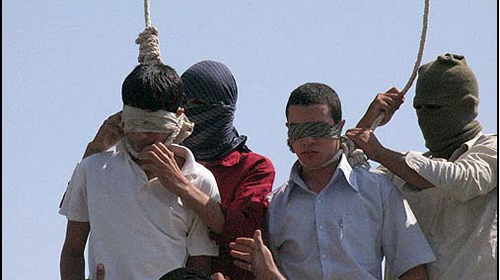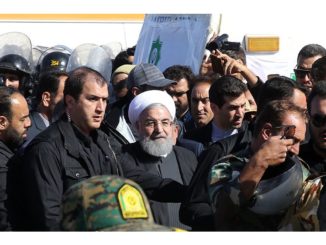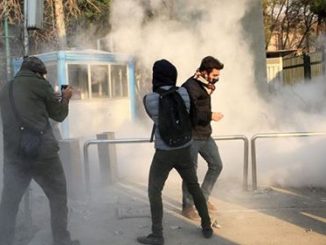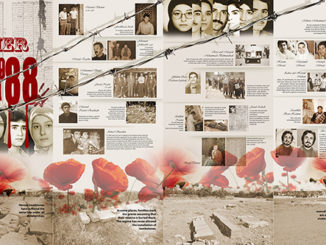
By Shahriar Kia
American Thinker, November 17, 2017 – As Tehran strives to cope with increasing international isolation, the Third Committee of the United Nations General Assembly adopted a new resolution condemning human rights violations in Iran. This is the 64th such condemnation slapped by UN entities against this regime’s human rights record.
Crippling sanctions forced Iran to the negotiating table over its controversial nuclear program and rendered a controversial nuclear deal. If a proper roadmap is laid out, the international community can stand alongside the Iranian people by sanctioning the regime to its knees over its gross human rights violations.
This resolution, approved with 83 votes in favor, condemned Iran’s increasing wave of executions, violations of freedoms of speech and assembly, religious and ethnic minorities, and discrimination against women. Such defilements have no place in the 21st century.
The Assad regime in Syria, supported heavily by Iran, has also been condemned on similar grounds. Tehran’s support for Damascus has displaced more than half of the country’s population, forced millions into seeking refuge abroad, and herded sectarian militia groups to literally occupy the entire country.
Such measures can be described as cruelty, oppression and sectarian cleansing, and in some cases complete ethnic eradication. The very image of many cities and neighborhoods, many centuries old, have altered completely as a result of Iran’s sectarian policies
Welcoming the new UN resolution, Iranian opposition leader Maryam Rajavi called on the international community, especially the U.N. Security Council to take urgent effective and practical measures against the Iranian regime targeting its systematic human rights violations
Iran has for years led the world in the number of executions per capita and its practice of mass executions.
Remarks made by Iran’s judiciary chief portray the regime’s anger and signals Tehran’s sensitivity regarding any focus on its human rights dossier.
Unfortunately, U.N. special rapporteurs resort to incorrect methods and raise allegations raised by infidels (term used by the Iranian regime for its opposition People’s Mojahedin Organization of Iran — PMOI/MEK) abroad against the Islamic republic,” said Sadeq Amoli Larijani in a recent session of Iran’s “Supreme Council of the Human Rights Department.”
The U.N. resolution expressed “serious concern” over the alarming count of death penalty verdicts, including execution of minors, based on forced confessions.
The text went on to criticize Iran’s “systematic and widespread use of arbitrary detention, including the use of such practices to target dual and foreign nationals, and to uphold, in law and in practice, procedural guarantees to ensure fair trial standards, including timely access to legal representation of one’s choice from the time of arrest through all stages of trial and all appeals.”
For nearly 38 years Iran’s human rights violations have gone unanswered. An adequate process of accountability is necessary to ring in senior regime officials, especially in judiciary and security entities.
One major case is the summer 1988 massacre of over 30,000 political prisoners, mostly consisting of PMOI/MEK members and supporters. Most likely all senior regime officials, from the Supreme Leader Ali Khamenei all the way down, were involved in this atrocity and currently defend their role.
Mostafa Pour-Mohammadi, Iran’s Justice Minister until August 2017, was quoted on 28 August 2016, by the semi-official Tasnim news agency as saying, “God commanded show no mercy to the nonbelievers… We are proud to have carried out God’s commandment with regard to the [PMOI/MEK]…”
Former intelligence minister Ali Fallahian, in a July interview with the state-affiliated Tarikh Online website, acknowledged how a 1988 fatwa issued by Iranian regime founder Ayatollah Khomeini called for the eradication of all PMOI/MEK affiliates.
Even PMOI supporters, whose only “crime” was distributing the group’s literature, buying bread or other provisions were found guilty of waging war on God and ultimately executed.
After nearly 30 years a vital measure is to launch an international independent inquiry into this horrific purge. Being one of the most atrocious crimes against humanity, serious measures are needed to prevent any possible repetition of such crimes in Iran and across the globe.
For 38 years the Iranian regime has enjoyed an unjustified impunity in committing human rights violations. Sanctions targeting these ongoing crimes by Tehran’s rulers are needed to show the Iranian people the international community is standing by their side in their struggle for freedom and democracy under a government “of the people, by the people, for the people,” as explained so eloquently by the legendary American president Abraham Lincoln.

Shahriar Kia




